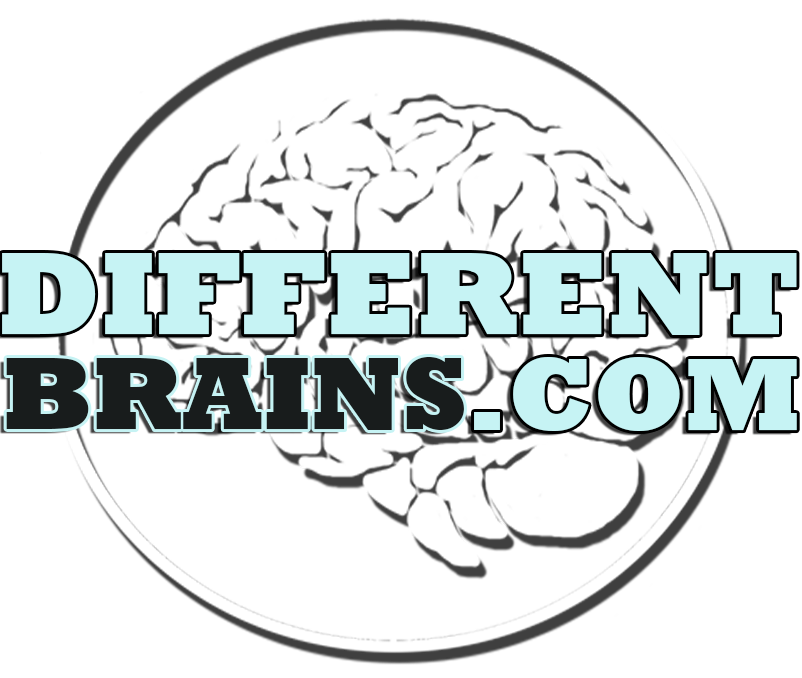BEFORE FORMAL REHABILITATION
Fostering a Recovery Attitude
Everyone wants to get back to where they were before the accident.
How this struggle will proceed is up to you, your caregivers, your support workers, and your health care team. But most of all, you.
First item on the agenda is to get the person back to doing their ADL’s (Activities of Daily Living)
This is the first step in a long process and a stage which I think should never really be left.
“HOW THIS STRUGGLE WILL PROCEED IS UP TO YOU ”
Relearning Activities of Daily Living (ADLs)
How do you get a person to relearn their ADL’s?
People have a natural desire to regain their previous abilities.
This natural desire to regain previous abilities is a strength that needs to be fostered.
How does one relearn how to brush one’s teeth for instance?
For me it consisted of my brother giving me a toothbrush and seeing what I would do with it. After a few moments spent waving it around in the air I put it in my mouth and started to brush with it: I don’t suppose I did it perfectly, but what do we really expect at this stage of rehabilitation.
“THIS NATURAL DESIRE TO REGAIN PREVIOUS ABILITIES IS A STRENGTH WHICH NEEDS TO BE FOSTERED."”
True Patience & Progression
A natural progression comes to be expected at first.
Which is fine.
But what happens when the skills are not so readily brought back?
Does the whole issue get resolved by saying that the person is unable to do any related task?
This happens too often in rehabilitation.
Are we patient with the person who has to try for a second and a third time?
Do we give them a chance to compensate for their deficits?
Are we truly patient?
Do we help the person learn to think for themselves again?
Helping the person learn to think and act for themselves again is the purpose of ABI rehabilitation.
“HELPING THE PERSON TO LEARN TO THINK & ACT FOR THEMSELVES IS THE PURPOSE OF ABI REHABILITATION””
Possibility Thinking
There is a favourite song of my wife and I which talks about all things are possible.
This is the attitude that the whole team needs to have throughout the rehabilitation process.
To aid the person in becoming the best that they can be given their deficits, but also, given their assets, one needs to encourage them with possibility thinking as well as being flexible. These two things are critical for a return to a rewarding life.
One has to think of all the possibilities out there now. There are many things out there that can satisfy a person: the traditional things do not have to be the sole prerequisites for a satisfying life any more.
“THE TRADITIONAL THINGS DO NOT HAVE TO BE THE SOLE PREREQUISITES FOR A SATISFYING LIFE ANY MORE”
It’s All About the Attitude:
Developing an Inquisitive Self-Stimulating Brain
At this point one needs to start to do an asset, not a deficit, based evaluation of skill. This
will help guide the survivor through the rest of his rehabilitation.
What needs to be promoted at this point is a new attitude and outlook on life. This should consist of developing an ‘ISSB’ , an ‘Inquisitive Self-Stimulating Brain’. How you reach this end goal is up to the survivor and their key relationships/supporters to work out. This attitude of questioning can be found in many places and should be nurtured: keep asking “how come?” As in the field of physics, there is always an explanation… if you dig deep enough. My background in engineering helped me immeasurably here. Perhaps it is up to each survivor to build on their own knowledge base that has been preserved after the accident and use that to generalize the thought patterns thereby developing the self- stimulating brain.
This attitude is up to the survivor. It is how you get better: building on the strengths that you have and making the whole of your brain function again through these strengths. Pulling oneself up by one’s bootstraps as it were.
This is all fine to say in theory but how can we transfer this information to the survivor?
It’s all about the attitude.
“WHAT NEEDS TO BE PROMOTED IS A NEW ATTITUDE AND OUTLOOK ON LIFE”
Long Term Habits & the 3FEFE:
Frequent, Frenetic, Factual, Executive Functioning Episodes
Moving on now to the basics of thought – what I call the ‘3FEFE’: Frequent, Frenetic, Factual, Executive Functioning Episodes.
Frequent
This is a function of the stage of the injury. At first it can be whenever you are free from therapy as it is more intensive at first. Later it can be exercised while doing something such as waiting for a bus or a phone call. Take care to be able to determine when you are exercising your brain and when you are making life decisions. The rapidity of the thought process should be performed in light of the consequences of the decision. Do not confuse how your mind works in spare moments with your life decision-making process.
Frenetic
Ideally this type of thinking should happen as often as possible. At first your mind may tire easily of this and you may become bored with being forced to think about things that are constructive. As time passes step up the pace as this will get you ready to multitask at work.
Factual
Objective facts are the point of this kind of directed thinking. This can be made open to an aid as opposed to subjective feelings which are personal.
Executive Functioning: Analyze, Remember & Plan
Often in survivors, this portion of the brain has suffered some damage and is the most apparent culprit in the inability of the survivor to think and reason in a manner which would allow us to return to competitive employment.
“LOOK AT THE WORLD AROUND YOU AND FIND ORDER IN IT.”
Analyze, Analyze, Analyze.
Look at the world around you and find order in it. Talk with some people about how things are made and how they work. This will help you to understand the forces at work in nature and machinery. People’s reactions are much harder to gauge. Practice with these also though as they will bring some predictability to your world.
Optimize everything around you from the way you do your laundry, to the way you cook your meals, to the way you organize your day.
Pick out patterns in pieces of fabric, in building design, in car design, in carpet patterns, in furniture, in stores, in regulations… find patterns in everything. Even in the numbers in your digital clock.
Use such a typical thing as eating to help with these aspects of your thinking. Find ways to predict and manage your last spoonfuls of cereal. Think about spreading the strawberries evenly over a piece of toast. How do you pour honey evenly over a crepe? The possibilities are endless.
This starting to think again is part of the inquisitive self-stimulating brain. This needs to be promoted especially at the start of relearning the Activities of Daily Living.
Remember, Remember, Remember.
While passing time endeavour to remember things from the previous day or week. Relax and be patient with yourself. Things may not come right away, and there may be some keys to unlocking certain events details such as what happened that morning.
Reinforcement
Later some reinforcement of the days activities will be required. As you sit in the evening enjoy revisiting the day’s events again in your mind. Reinforcement of the things that you have tended to during the day is helpful. This time of reflection is a good habit to get into; even though it is not highly regarded in our society, it is necessary now. This gives another instance to relearn the day’s activities without any pressure or outside influences.
Recollection
At first your recollections will probably be limited to the things which are most vivid in your memory. Relax and let the memories flow forth… perhaps use some pictures to stimulate these thoughts at first. Talking with others about shared experiences will be helpful. Also, going to a familiar place may help set the stage for further recollections.
“IT’S UP TO YOU TO CHALLENGE YOURSELF.”
Plan, Plan, Plan.
While daydreaming think of the days or weeks ahead and plan through them. Plan what you need to do beforehand, and what you need to take with you. Make a list of all these things. Refer to your list as often as you need to. Jot some things down as they come to mind. This will ensure that your events will progress smoothly.
Plan your clothes and your meals – at first this may be done with the aid of writing them out. Try and progress to doing them just before. I know of one gentleman who has a list of his day’s tasks that he takes with him each and every day. Now often when he looks at the sheet he sees that he is already doing them correctly.
Another example of this is your household chores.
So you need to get the laundry done, the dishes washed and to put on water to boil for the evening’s dinner.
Group these tasks together.
First put the laundry in.
Then put the pot of water on the stove to boil.
Then go and wash the dishes.
After the dishes put the pasta in and then wait for it to cook.
Meanwhile your laundry should be getting done.
After the pasta is done and you have eaten change the laundry to the dryer and wash the
dishes again.
This multi-tasking at its best.
Don’t be always occupied with doing things sequentially, instead try to do this multi-tasking…
Its up to you to challenge yourself.
"HAVE A MIND THAT LETS YOUR EXECUTIVE FUNCTION IN YOUR FREE TIME"
Episodes
The timing of these forays into the use of the executive functioning may vary greatly. At first, perhaps three or four per hour. However, as you progress through your therapy a number like 20 might be more appropriate. This comes about by looking to your spirit for strength and by being aggressive in your thought process.
As you progress, writing down intermediate steps may become less necessary. This is the goal: to have a mind that lets your executive function in your free time without any written cues. This is what I have progressed to: the self-stimulating brain at work.
These three facets of your executive functioning – analyzing, remembering and planning – should form the basis for much of your activity during your idle times.
“THE MORE REVOLUTIONARY AN IDEA THE FEWER PEOPLE WILL THINK IT’S COOL.”
In Conclusion
I would like to end with a quote from Nolan Bushnell, rated by Newsweek as one of the 50 most important men in the US…. Why was this? He founded 20 companies in the US, amongst them Atari… he was also the first to hire Steve Jobs and Steve Wozniak.
He says, “The more revolutionary an idea is the fewer people will think it’s cool”.
Imagine that…..
The professional being there but, after the ADL’s, only being a guiding, mentoring style of role in the position as professional.



